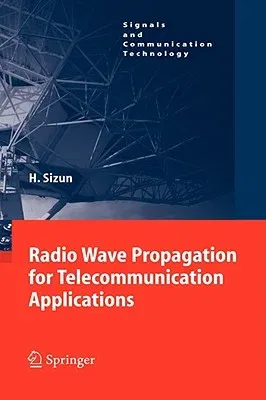Hervé Sizun
(Author)Radio Wave Propagation for Telecommunication Applications (2005)Hardcover - 2005, 6 October 2004

Qty
1
Turbo
Ships in 2 - 3 days
In Stock
Free Delivery
Cash on Delivery
15 Days
Free Returns
Secure Checkout

Part of Series
Signals and Communication Technology
Part of Series
Signals and Communication Technology (Hardcover)
Print Length
414 pages
Language
English
Publisher
Springer
Date Published
6 Oct 2004
ISBN-10
3540407588
ISBN-13
9783540407584
Description
Product Details
Author:
Book Edition:
2005
Book Format:
Hardcover
Country of Origin:
DE
Date Published:
6 October 2004
Dimensions:
23.7 x
16.46 x
2.92 cm
ISBN-10:
3540407588
ISBN-13:
9783540407584
Language:
English
Location:
Berlin, Heidelberg
Pages:
414
Publisher:
Weight:
780.18 gm